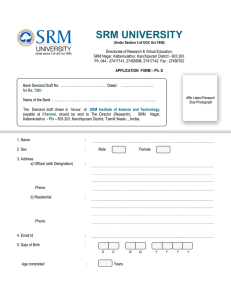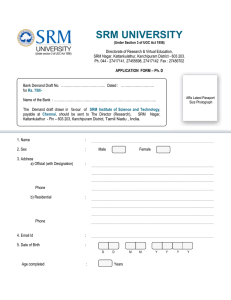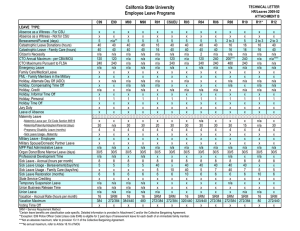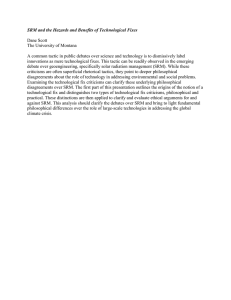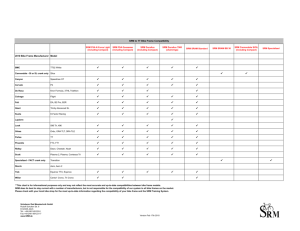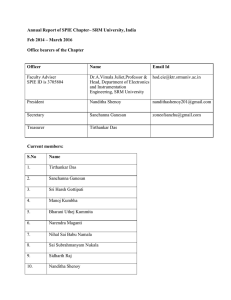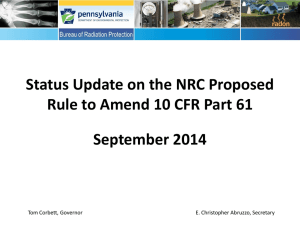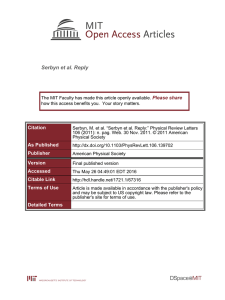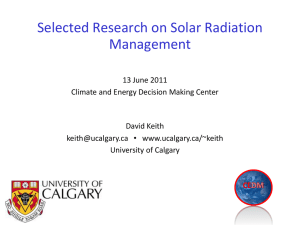Science for Policy: SRM and Coupled Epistemic-Ethical Issues Nancy Tuana
advertisement
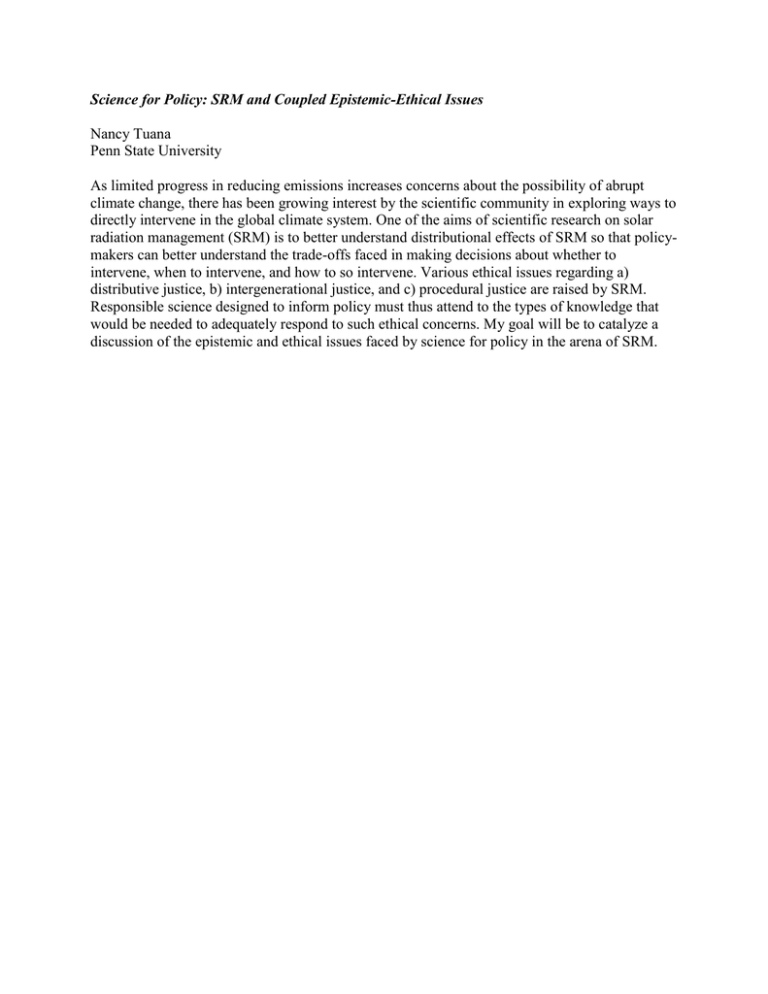
Science for Policy: SRM and Coupled Epistemic-Ethical Issues Nancy Tuana Penn State University As limited progress in reducing emissions increases concerns about the possibility of abrupt climate change, there has been growing interest by the scientific community in exploring ways to directly intervene in the global climate system. One of the aims of scientific research on solar radiation management (SRM) is to better understand distributional effects of SRM so that policymakers can better understand the trade-offs faced in making decisions about whether to intervene, when to intervene, and how to so intervene. Various ethical issues regarding a) distributive justice, b) intergenerational justice, and c) procedural justice are raised by SRM. Responsible science designed to inform policy must thus attend to the types of knowledge that would be needed to adequately respond to such ethical concerns. My goal will be to catalyze a discussion of the epistemic and ethical issues faced by science for policy in the arena of SRM.

